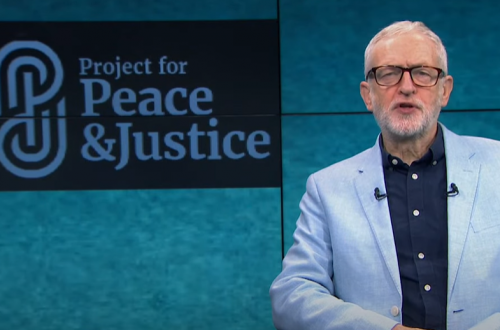Where does one start with this? Here’s how 5Pillars introduces its report:
An independent survey commissioned by 5Pillars has revealed that an overwhelming consensus exists amongst influential British Muslims about their faith.
The survey which was carried out by market research company PCP asked participants to state their level of agreement to 95 statements categorised under twelve subject areas about Islamic beliefs and practices.
The findings were compiled and entitled the ‘Normative Islam Report’, which was published earlier today at the London Muslim Centre.
Out of a list of 352 British Muslim leaders which was submitted to PCP by 5Pillars, 150 completed the survey.
Their executive summary is here. My own executive summary: this project seeks to disown the most violent ISIS supporting extremists, privilege orthodox or conservative Islam while apparently fudging its true nature, and completely sideline more secular and liberal Muslim voices.
They only asked Muslim leaders to respond – and made their own decisions, of course, about who those leaders are. I would guess that no Muslims associated with liberal organisations such as Quilliam or BMSD, were invited, and I noticed that the option ‘Ahmadi’ was not offered alongside Sunni and Shia. (One of the statements people were invited to agree with was “The Prophet Muhammad is the last and final prophet and messenger of God”).
5Pillars seems to think that any views demonstrated to be ‘normative’ within Islam must therefore be accepted and tolerated by others. But many – including some Muslims of course – simply won’t accept this logic, and also won’t accept that this means we are bigots.
Some of the assertions people were invited to comment on were pretty uncontentious – for example “God is the sole creator, uniquely One and has no partners” and “Free health care should be provided to all regardless of age, gender, race, religion or any other variables”.
But there were plenty of notable omissions from the survey. For example respondents were invited to agree that:
“Islamic law is only applied with strict due process, evidence, a fair trial, judicial transparency and requires very high burdens of proof for conviction”
but the reader anxious to find out exactly who might be punished, and how, in this very fair manner would remain puzzled. (If you are considering a search for ‘huddud’ or ‘apostate’ – don’t bother.)
This sounds good – “Safety and protection of women must be ensured, and their dignity protected” – but there is no indication as to how this should be achieved. It’s one of many statements which could mean quite different things to different people, and presumably this dog whistle effect is no accident.
Here’s another ambiguous statement.
“Among the rights of women are to seek education, participate in business and to engage in societal affairs according to the laws and etiquettes defined by the Creator”
What does this mean, particularly the bit about etiquettes? Does it include, for example, securing permission from one’s husband?
Another statement which seems designed to mislead the casual reader is:
“There is no compulsion in religion. No one can be forced to become a Muslim”
There is nothing here about whether or not one should be compelled to remain a Muslim. Many Muslims believe that people should be as free to leave Islam as to choose it. I suspect those at 5pillars don’t share that view – but don’t want to draw too much attention to the issue either.
Quite a few respondents didn’t seem to go along with the 5pillars line on the Caliphate.
“The true Caliphate (or any other Islamic equivalent) is not a theocratic state” (61% strongly agreed) and “The true Caliphate (or any other Islamic equivalent) is considered the ideal Islamic way of governance for all people” (69%).
It’s not clear quite what is mean by ‘not a theocratic state’ or exactly how this can be squared with another assertion – ‘Islamic law addresses all aspects of human life. This includes spirituality, crime and punishment, economics, foreign affairs, governance, inheritance and social justice.’
Although 5pillars seems to want to brush some bits of Islam under the carpet, when it comes to blasphemy it is keen to normalise its views, presumably to pressure non-Muslims into accepting them.
Insulting beliefs or Prophets is absolutely unacceptable and strongly condemned.
It’s difficult to know quite how to interpret some of the responses.
Female genital mutilation is forbidden in Islam.
Did those who disagreed actively support the views of, for example, Haitham al Haddad, or were they simply acknowledging that there is a tradition of support for the practice within Islam?
Some respondents were unsure whether anal sex was outlawed by Islam. Does that mean that those who disagreed that ‘Those who commit homosexual or adulterous acts whilst recognising them as sinful remain Muslim, as is the case with those who commit other major sins’ were in fact disputing the fact that homosexual acts are sinful rather than asserting they do not remain Muslim?
Even within a small and handpicked group of Muslims there was significant disagreement over such issues as gender segregation and the niqab. If a more representative sample of Muslims had been chosen, there would almost certainly have been a good deal more dissent. 5Pillars cannot dictate what Islam is – and still less should it dictate that we approve of something because they claim it is ‘normative’.
Update: Apparently Quilliam was invited to participate but didn’t respond (via 5Pillars editor on Twitter.)


